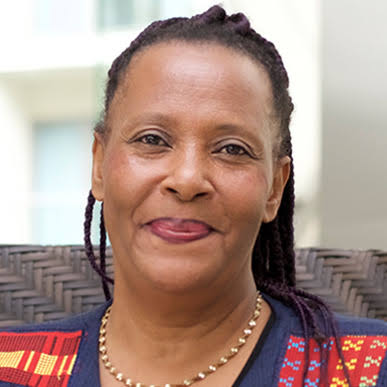By Staff Reporter
The 13th edition of the International African Writers’ Day Lecture will be headlined by one of the continent’s most formidable intellectual voices in translation and African languages, Professor Wangui wa Goro, when the historic gathering takes place on 11 November 2025 at the Roodepoort Theatre and Museum, hosted by the South African Literary Awards (SALA) in partnership with the Department of Sport, Arts and Culture (DSAC), and for the first time, the City of Johannesburg through its Library and Information Services.
This year’s lecture is anchored on the theme: “The Future of African Writing and Translation: Transforming Landscapes and Enhancing the Mbokodo Narratives.”
The theme signals an intentional re-centering of African languages, women’s narratives, intellectual sovereignty, and translation as a liberatory tool within the literary canon of the continent and the diaspora.
A trailblazer in translation and African feminist literary practice
Professor Wangui wa Goro is widely celebrated as a pioneering translator, writer, poet, cultural curator and intersectional freedom advocate. She rose to international prominence for her groundbreaking Gikuyu translation of Ngũgĩ wa Thiong’o’s celebrated novel Matigari, as well as his children’s literature series, Njamba Nene. Her work extends across English, French, Italian, Kiswahili, and Gikuyu, making her one of the foremost thinkers and practitioners of translation as cultural restitution.
Her writings appear in globally acclaimed anthologies including Ama Ata Aidoo’s African Love Stories and Margaret Busby’s New Daughters of Africa. She also holds an Honorary Professorship of Translation Practice at SOAS, University of London, is a Visiting Academic at the African Leadership Centre (ALC), King’s College London, and remains a fierce advocate for her self-described “Three P’s of African Languages”: Protect. Preserve. Promote.
She has curated the influential Africa in Translation (AiT) festival, amplifying African literary thought leadership in cultural capitals around the globe.
A growing legacy of African literary thought
The International African Writers’ Day Lecture series has since its inception assembled a powerful lineage of African intellectuals, writers and philosopher-leaders. The inaugural lecture was delivered by President Thabo Mbeki in 2012, followed by leading continental voices including Samia Nkrumah, Professor Micere Mugo, Minister Nathi Mthethwa, Professors Mandla Makhanya, Zodwa Motsa, Kwesi Kwaa Prah, Puleng LenkaBula, and renowned storyteller Dr. Gcina Mhlophe.
In 2024, the 12th edition was delivered by Professor Vuyisile Msila, who explored “Artificial Intelligence (AI), Social Justice and Social Change: The Future of Literature in Africa”. This year’s focus builds on that foundation by emphasising translation and interpretation as instruments of epistemic justice and cultural emancipation.
“Turning our gaze to the transformative power of translation”
Speaking ahead of the event, Mr Morakabe Raks Seakhoa, Director of the Conference, said: “…this year we are turning our gaze towards the transformative power of literary translation and interpretation and their impact on literature, social justice and social change — and what the future portends in the creative and cultural space.”
The lecture continues to advance the 1991 resolution of the OAU’s Conference of African Ministers of Education and Culture “to afford the African people a moment of pause within which to reflect on the contribution of African Writers to the development of the Continent.”
SALA Awards to honour 20 years of literary excellence
Immediately following the public lecture will be the 20th Annual South African Literary Awards (SALA) prize-giving ceremony. Since its inception in 2005, SALA has honoured over 300 authors across sixteen categories in eleven official languages, making it one of Africa’s longest-standing and most inclusive literary honours systems.
Restoring memory, restoring language, restoring worlds
The 2025 lecture is poised to be among the most consequential yet — not only because of the calibre of its keynote speaker, but also because it returns African translation to its rightful place as a tool for rebuilding intellectual sovereignty, feminist agency, and generational cultural continuity.
“With the stellar cast made up of such excellent authors and scholars, the 13th International African Writers’ Day Lecture portends a worthy and timely contribution to the AU’s vision of the African Renaissance and Agenda 2063,” Seakhoa concluded.

